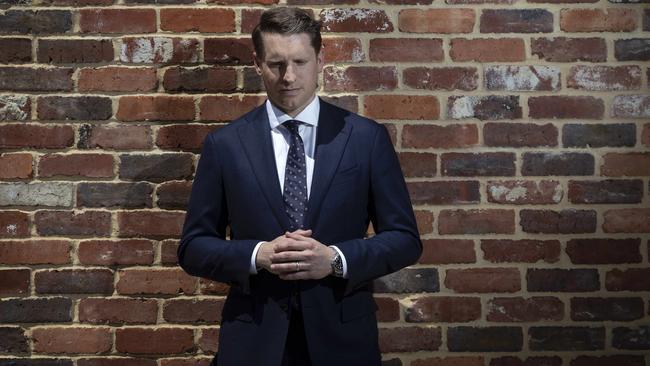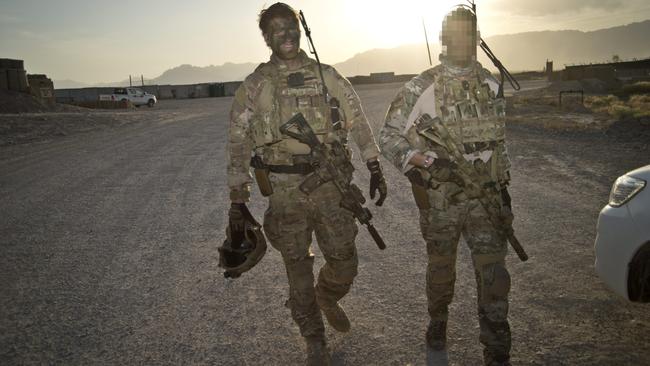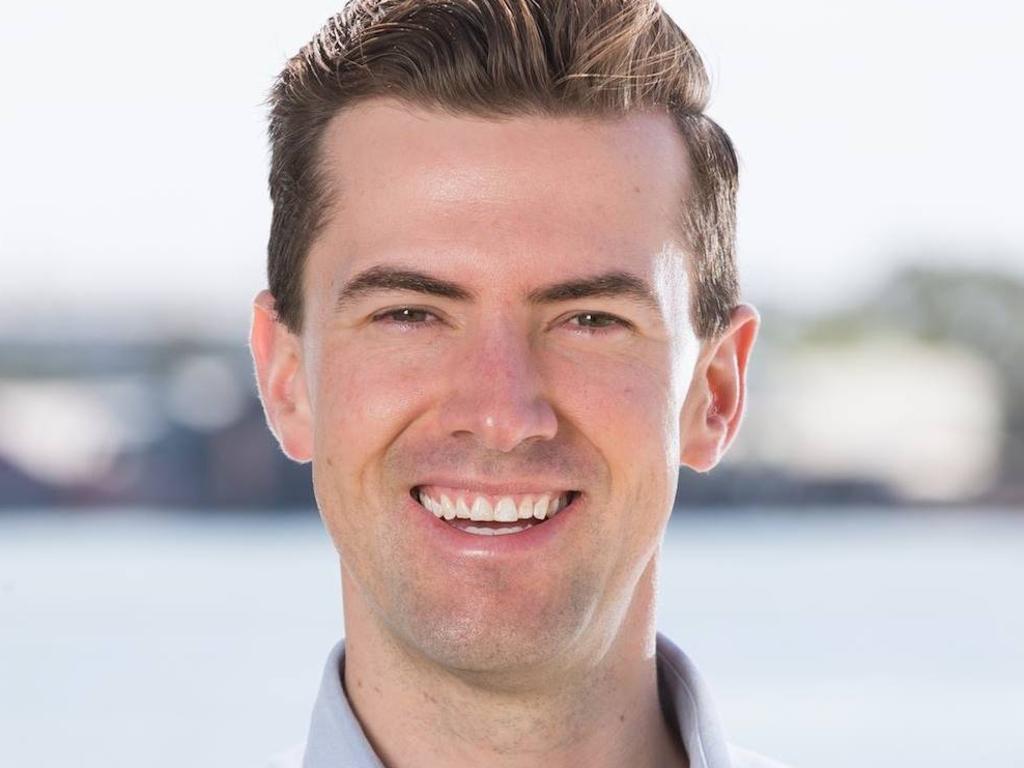Andrew Hastie: My great shame ... but our boys were left in degrading war
In a deeply personal account of his time with the SAS, Lib MP Andrew Hastie says an over-reliance on the troops hardened their hearts.

Former Special Air Services troop commander and federal Liberal MP Andrew Hastie has for the first time voiced his personal shame over the war crimes alleged to have been carried out by soldiers he served with in Afghanistan, but said people needed to understand the brutality of our longest-running war.
In a deeply personal account of his own time on the front line with the elite unit, the West Australian MP said the over-reliance on the elite unit in trying to fight a war without a visible victory had hardened the hearts of those sent to fight it.
“People lost their way,” Mr Hastie said.
“Many people want to know: how did this happen?
“First, we have forgotten basic truths about human nature that previous generations of Australians better understood.
“We live in a bent world and we all carry man’s smudge: people do bad things.
“Christians call it sin in a fallen world. Whatever we call this inclination, we should always guard against the reality of people doing bad things when they are left unaccountable.”
The federal member for the West Australian seat of Canning, who also chairs the Parliamentary Joint Committee on Intelligence and Security, has now called for urgent reform to civilian oversight of the Australian military in the wake of the Brereton report.
Mr Hastie seeks the creation of a joint parliamentary defence committee with powers to compel chiefs to provide classified briefings on operations. The call for greater accountability and transparency of the nation’s military commitments and how they are waged has the private backing of several government and Labor MPs with concerns over the historical lack of parliamentary scrutiny of the defence department and the Australian Defence Force.
READ: Andrew Hastie’s deeply personal account here
But Mr Hastie also blasted the ADF’s “stage-managed” public relations handling of the war in Afghanistan, claiming that it had sought to “sanitise” Australia’s role in the conflict and prevented scrutiny when it was needed.
In a veiled reference to the top brass, Mr Hastie said that those at “the very top”, as well as those at the bottom who stand accused of the crimes, also needed to also be held accountable for what happened.
In his first public response to the release of the damning report that found credible proof that 19 members of Australian special forces should be referred for prosecution over 39 unlawful killings, Mr Hastie said that, although he was “grieved” by the findings, he resolutely defended the regiment and questioned the report’s criticisms of the elite combat unit’s “warrior culture”.

Mr Hastie was a former SAS troop commander who served with the Special Operations Task Group in Afghanistan before being elected to parliament at a byelection in 2015.
Writing for The Australian, Mr Hastie, who is understood not to be under investigation, said: “As a former officer of the SASR and someone who believes in regimental honour, I feel great shame in what has occurred.
“We were sent to Afghanistan in a double trust — to defend Australia’s values and interests by force, but also to uphold those values in our battlefield conduct. Many good soldiers honoured that trust; a small number of soldiers did not.
“We ignored the true nature of war and sanitised it.
“We pretended it was no different to any other form of unilateral government policy.
“But the reality is that war is inherently violent, escalatory and degrading.
“It is a modern conceit to pretend that war can be managed with a set of safe technocratic hands.
“The brutal reality is that no plan ever survives the first shot. People lose their way and become hard of heart, especially after multiple deployments.”
“War has its own dark energy that can consume people in ways that modern society cannot comprehend, largely because we have packaged it up nicely for the evening news.”
READ: Andrew Hastie’s deeply personal account here
Mr Hastie writes that the ADF sanitised the war to avoid scrutiny. Had it been managed differently, he says much of what occurred might have been avoided.
“The Australian Defence Force was very effective at sanitising our longest war with its legions of Public Affairs Officers,” he writes. “Whereas the United Kingdom and the USA took a far more liberal approach with allowing reporters to see their soldiers at war, we stage-managed Australia’s contribution to Afghanistan through a carefully crafted information operation.
“This approach stifled public interest reporting. Perhaps with greater access for the Australian media, we might have avoided some of the worst allegations made in the Brereton Report.
“Parliamentary scrutiny these days is surface level,” Mr Hastie said.
“It amounts to senior Defence leadership presenting a few PowerPoint slides and giving parliamentarians a pat on the head. This is an area of urgent reform.
“If we are serious about increased accountability and transparency, then we need proper parliamentary scrutiny of the Department of Defence and the Australian Defence Force.”







